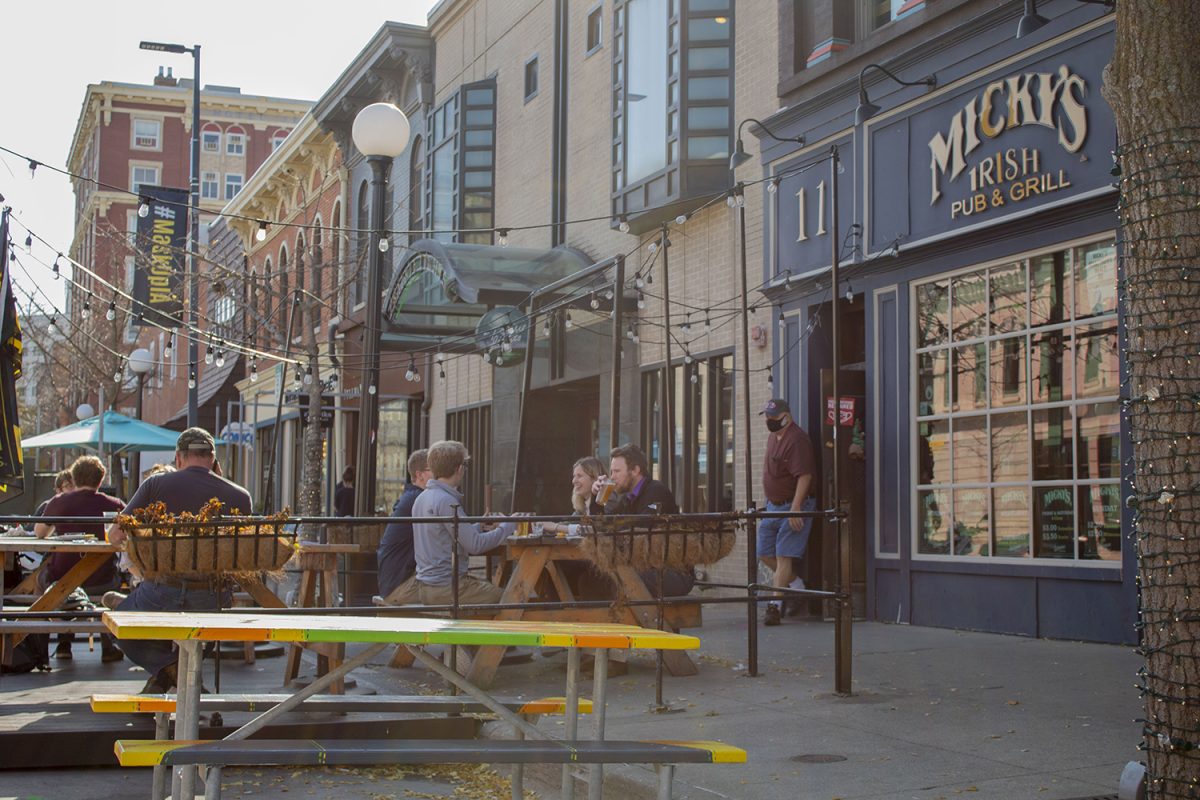Now that Dubuque Street has opened after a lengthy reconstruction project, it illuminates potential ways Iowa City could re-develop the downtown area. Given the popularity of the Ped Mall, extension of the current boundaries on Dubuque Street could help people reclaim the commercial heart of Iowa City.
The Ped Mall was originally built as part of a 1960s urban renewal effort that sought to revive downtown centers, with the mall being completed in 1979. Today, the Ped Mall is just one of 11 that remain around the country.
It’s difficult to imagine Iowa City without the Ped Mall, especially as a student involved in the nightlife culture.
It’s unnecessary to watch for traffic as you walk from Brothers to Roxxy or from TCB to the Field House, but it’s essential if you are visiting other businesses down the street. If you’re at Micky’s and want to visit Sports Column, you have to wait for the walk sign or jaywalk, which can be risky around unpredictable drivers.
An expansion of the Ped Mall would enhance the safety of the area, allowing residents to visit downtown businesses without the danger of cars speeding by.
It would also demonstrate a commitment by Iowa City to host fewer cars and increase walkability, not to mention the businesses that would benefit from increased outdoor space and visibility to potential customers.
This area could be utilized by businesses for outdoor seating, increasing the number of customers they can serve. The space could also be updated for more family-friendly recreational activities, like pickleball courts, fountains, and playgrounds.
With growing calls for walkable cities, Iowa City has the perfect opportunity to expand upon available infrastructure. From a university perspective, expansion of the Ped-Mall would reinforce the campus as walkable and bike-friendly.
As mentioned before, our Ped-Mall is just one of 11 left. This unique piece of urban development should be celebrated and further developed to distinguish Iowa City from other towns and college campuses.



